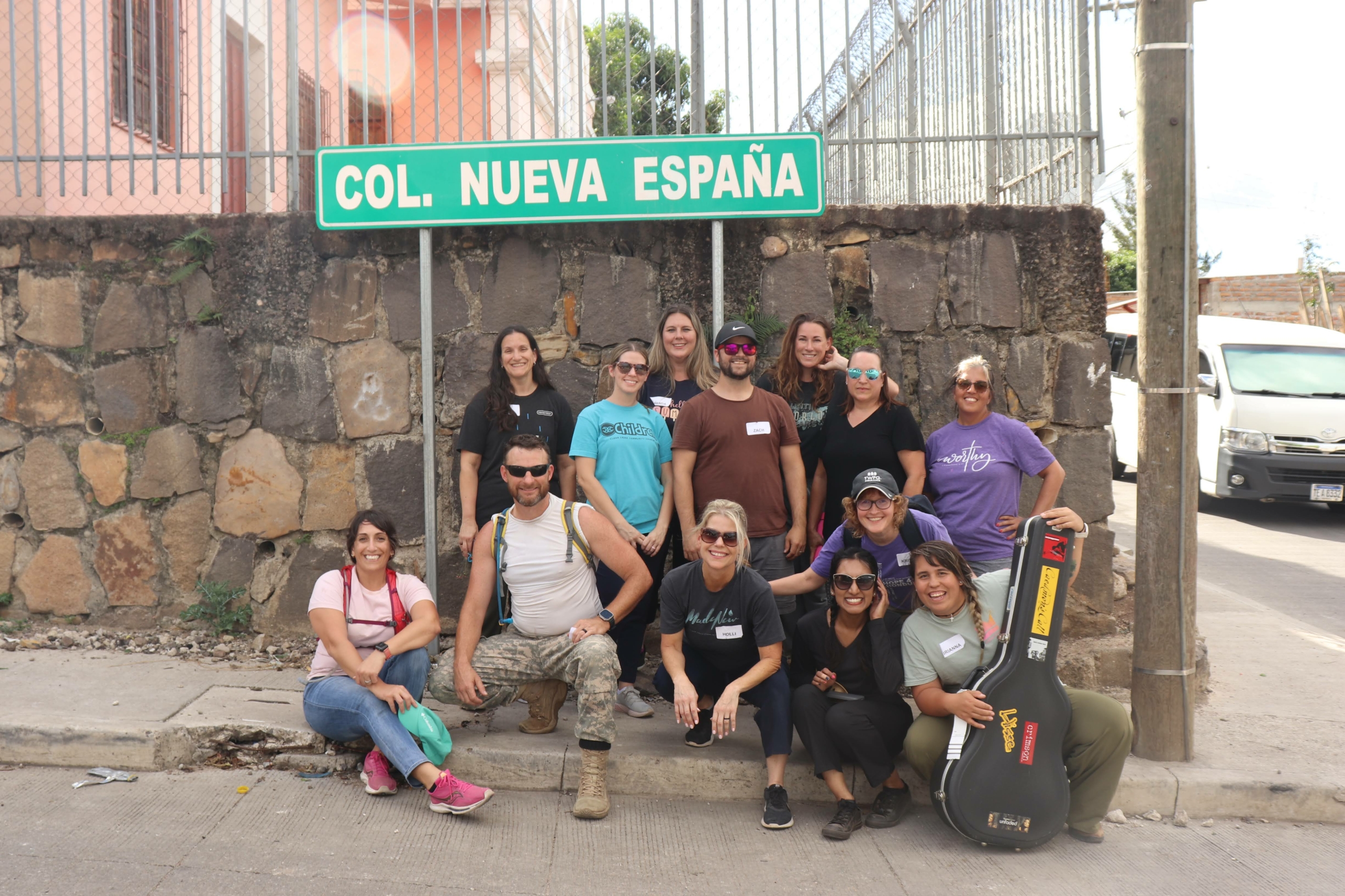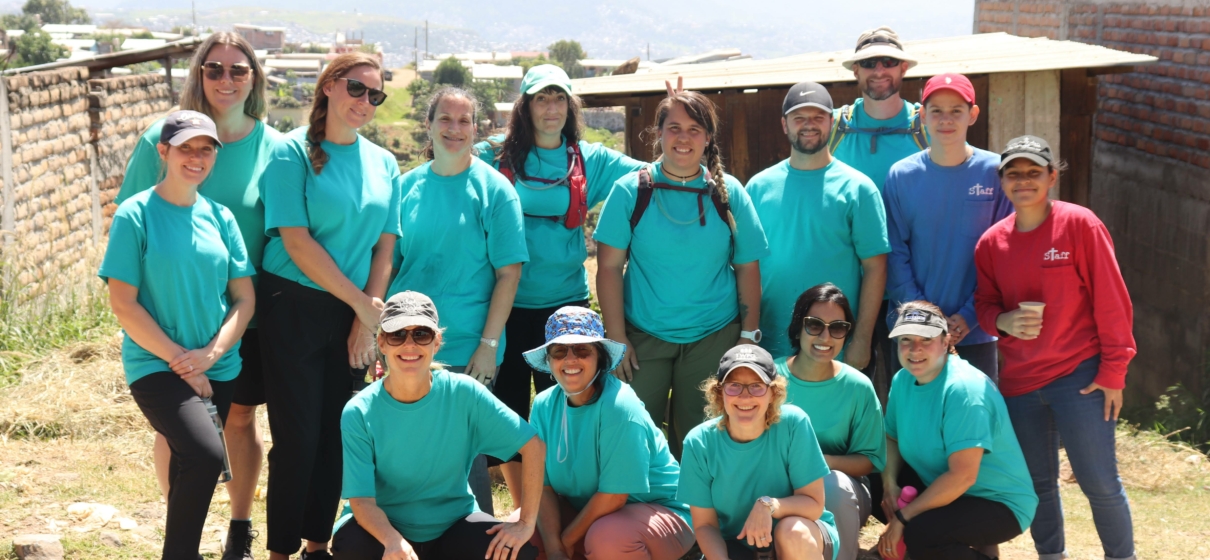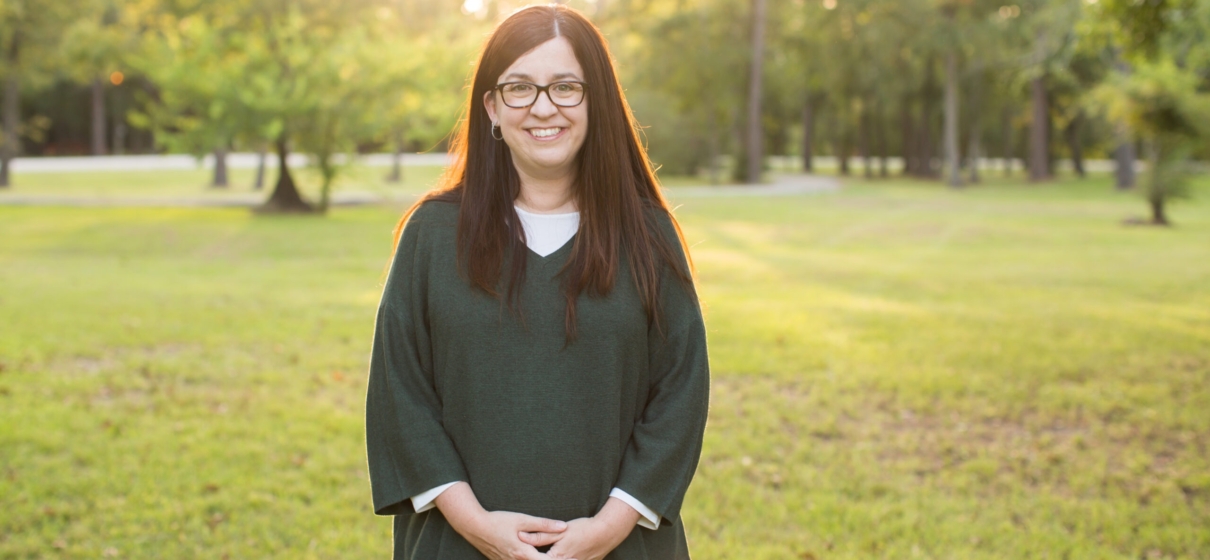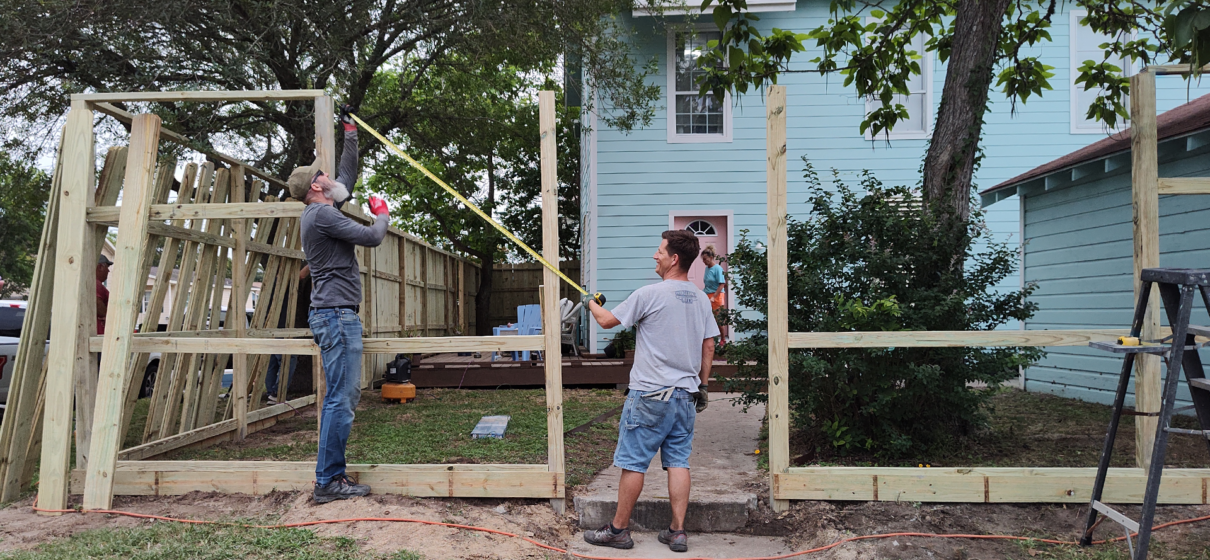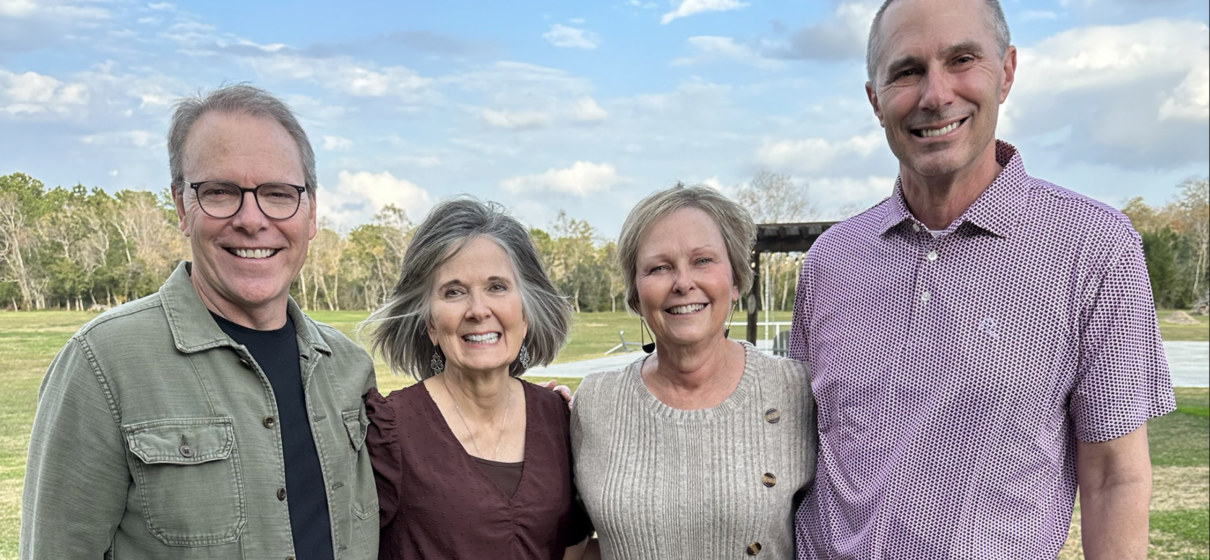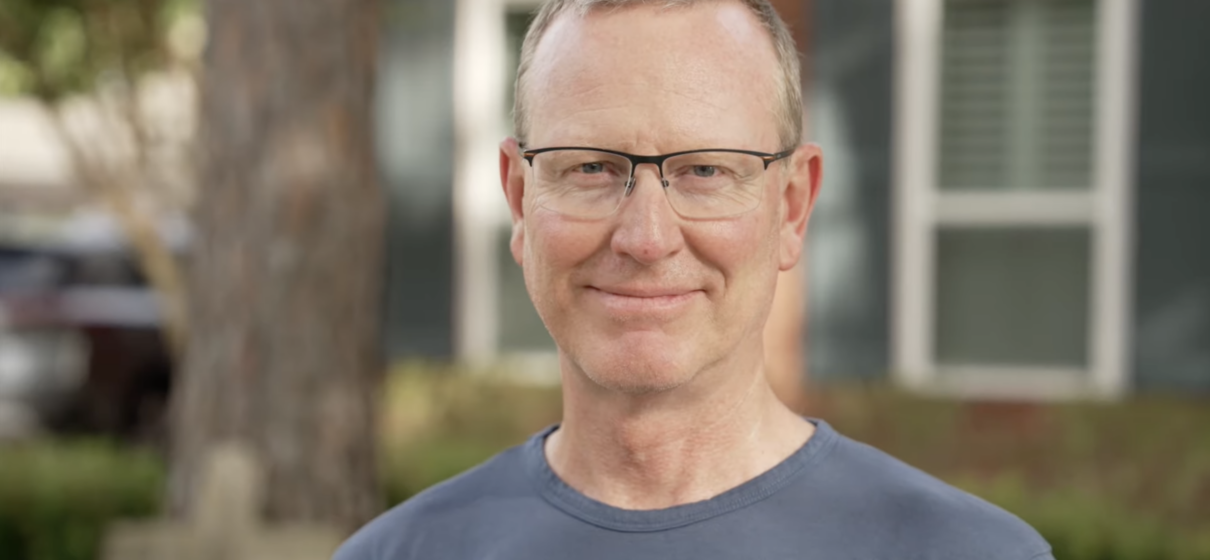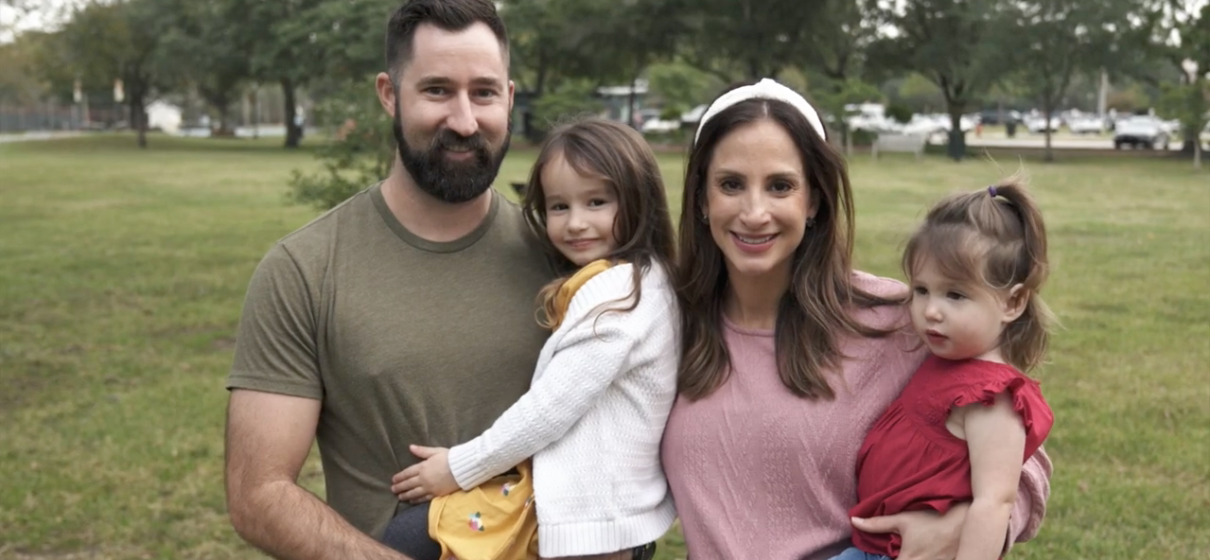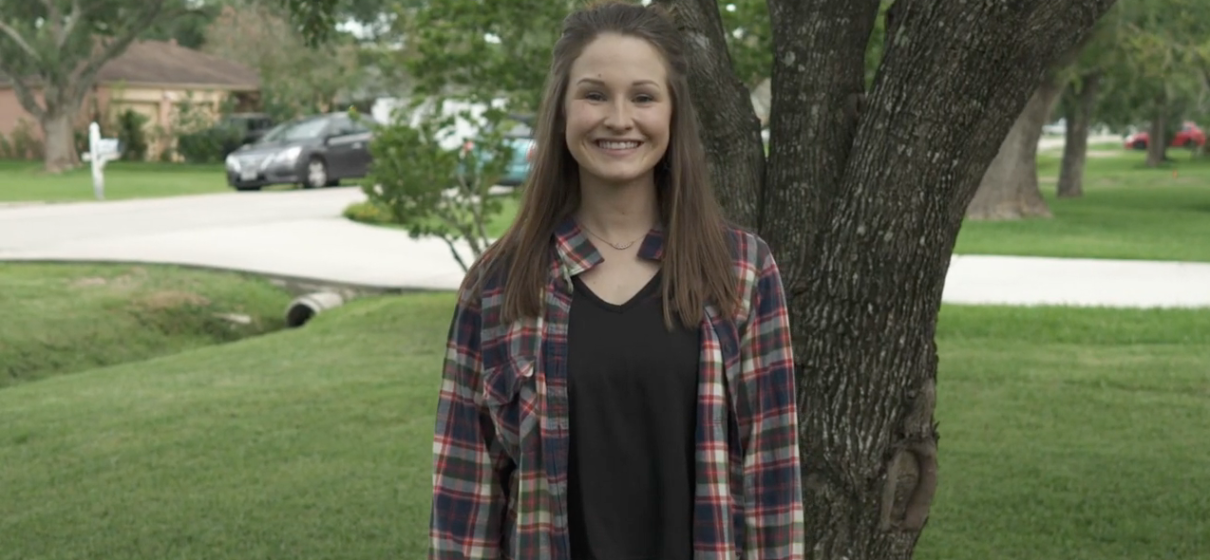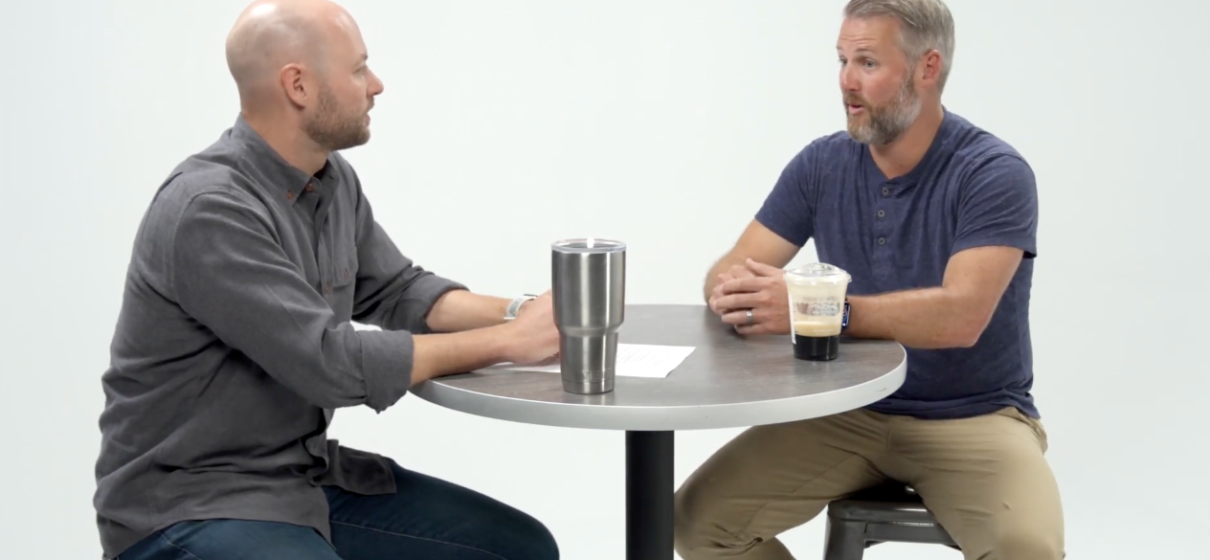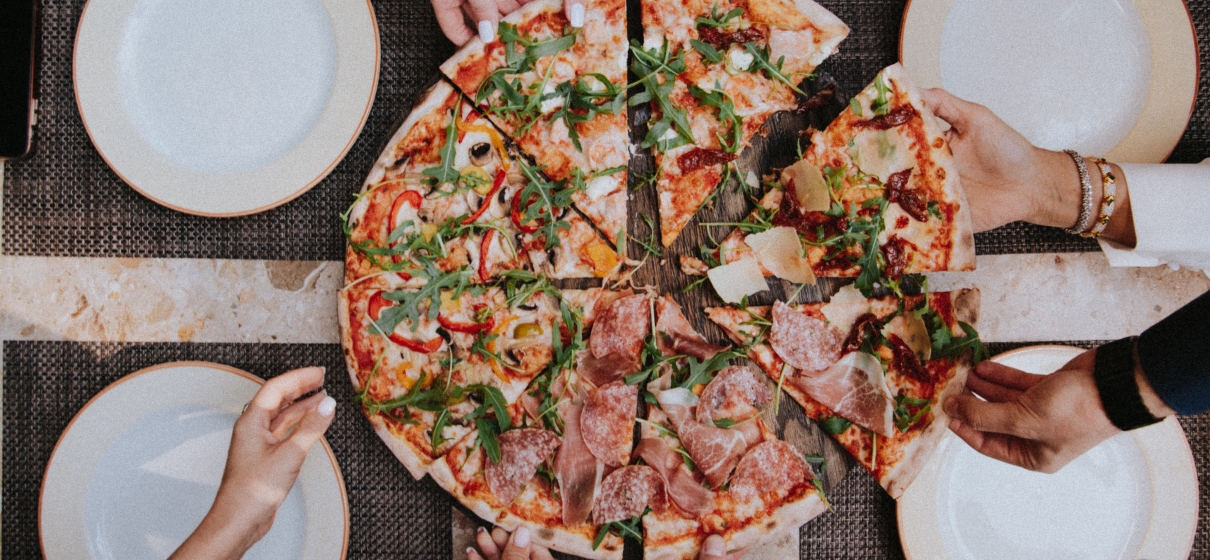Friendship on Foreign Soil
Meet Krissy
In the beginning of 2020, Krissy Jones found herself in a state of deep spiritual slumber. What started as a desire for rest and a pause from the busyness of life had evolved into apathy toward God and others. For a chronically busy person like Krissy, the Covid pandemic provided a great respite from people. Seeing social obligations drop off the calendar felt like a dream come true. Covid meant she could tell people no. She could stay home and do nothing, wearing pajamas indefinitely. And like many others, she grew to love it. People required effort, but Netflix offered immediate comfort. The problem was that living life “asleep” became a steady, insatiable habit. Even when the threat of Covid had passed, Krissy’s spiritual slumber continued.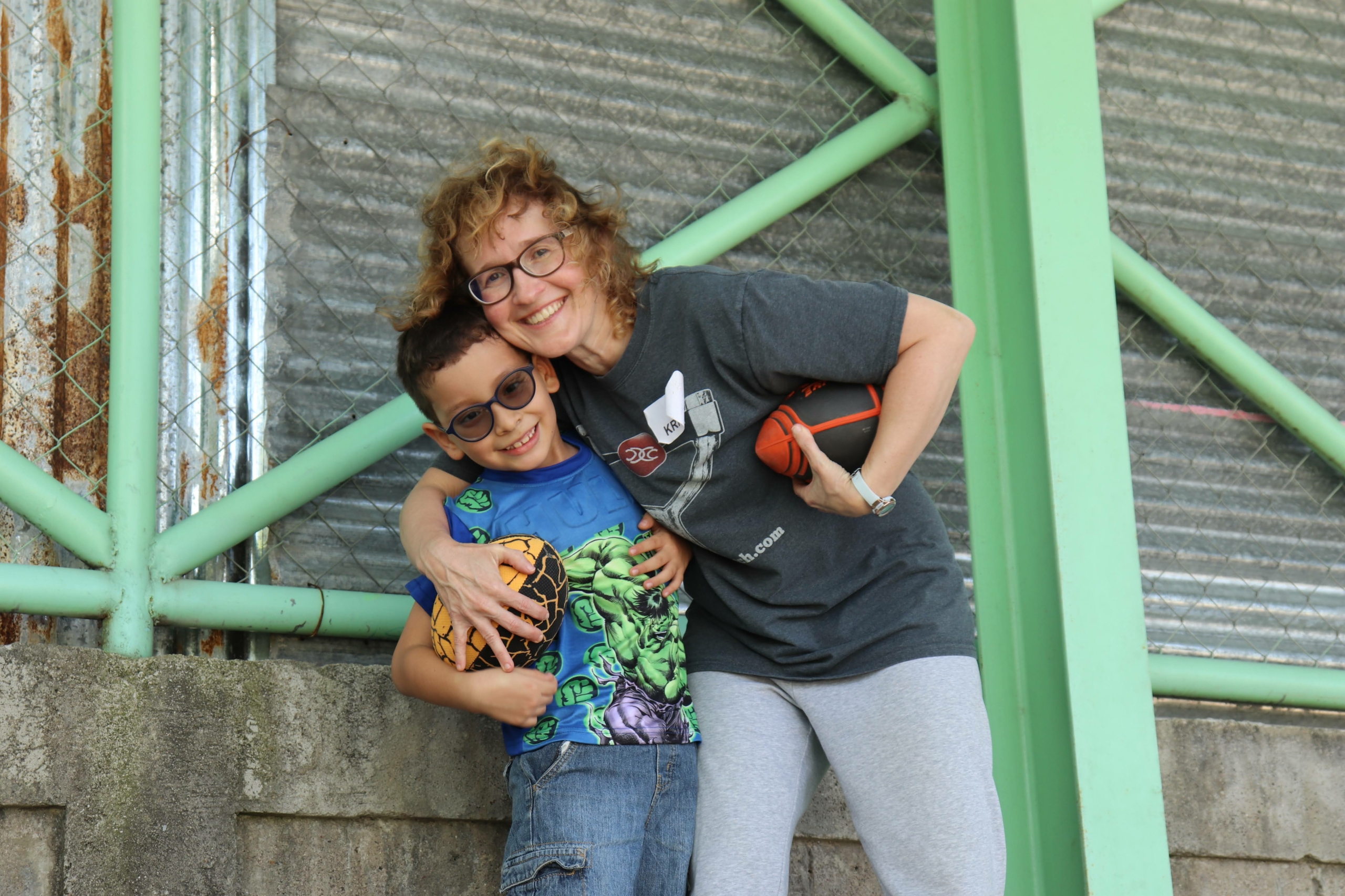
“I had fallen asleep spiritually, worshiping the gods of pleasure and comfort,” Krissy said. Endless Netflix consumed her time. She sought rest mostly from sources other than the Lord. On some level, she wanted God to wake her up. But on the other hand, spiritual slumber was easy. It was easier to isolate and focus on herself, convincing herself that “she needed this break.” Sure, she still had spiritual commitments: small group, band, church on Sundays, etc. But the passion for any of these spiritual pursuits was gone; the life and love of it was missing. After all, people were difficult and hurtful and messy. After several wounds and difficulties in ministry, ice began forming around Krissy’s heart. Deep down, she knew that chasing after her own selfish desires would never truly satisfy. She had experienced the unexplainable joy of living fully surrendered to Jesus before, and she wanted to feel it again.
Krissy decided to sign up for the 2023 Honduras mission trip, and she longed for what it promised: a spiritual awakening. “I wanted revival. I needed renewal,” Krissy said. She had gone to Honduras on mission trips several times before. Each time, she had experienced a spiritual awakening, only to fall right back asleep. But something felt different about this upcoming trip. She began to fervently pray and even express to others, “I want things to be different for me when I come back home.” In the midst of her slumber, Krissy longed for lasting spiritual awakening.
Meet Maria
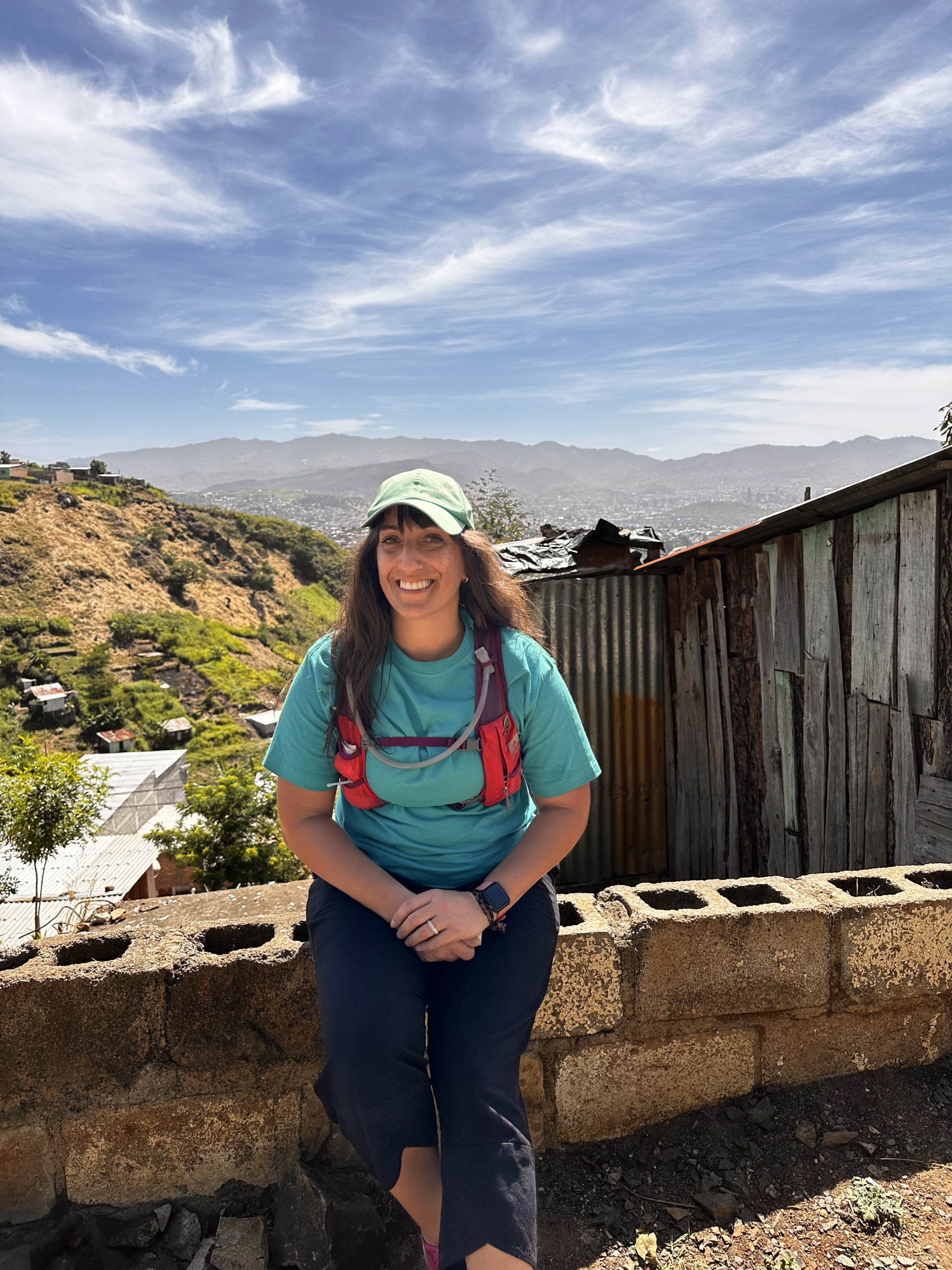 Maria Diaz’s experience of the pandemic was quite different from Krissy’s. As an ICU nurse, Maria’s work life became heavy and all-consuming. Long work hours, sickness, and death were all around. Isolation began to fill up the spaces that were once filled with friendship. When Covid caused all church services to go online, her feeling of spiritual community disintegrated. It was as though the spiritual wind was taken out of her sails.
Maria Diaz’s experience of the pandemic was quite different from Krissy’s. As an ICU nurse, Maria’s work life became heavy and all-consuming. Long work hours, sickness, and death were all around. Isolation began to fill up the spaces that were once filled with friendship. When Covid caused all church services to go online, her feeling of spiritual community disintegrated. It was as though the spiritual wind was taken out of her sails.
Maria felt painfully distanced from her church community, family, and friends. Just as wearing a physical mask helped to shield her from invisible germs that could harm her, Maria’s emotional mask also shielded the fullness of her struggles from others. By protecting her friends and loved ones from the messier parts of who she was—her fears, her sin, her vulnerabilities—she also denied them the privilege of bearing her burdens and celebrating her victories. In the process, she deprived herself of the joy that comes with sharing the deepest parts of her soul and being loved anyway.
When the imminent threat of Covid was over and people’s lives started to look normal again, Maria was determined for things to change. She was tired of going through the motions, attending church but not fully engaging with God and others. “I longed for something more than what I was experiencing in my spiritual life,” she said. At the same time, troubles began brewing at home. She had just stepped into what turned out to be one of the hardest seasons in her family’s life. As things began to unravel at home, Maria knew she was going to need other people around her.
Toward the end of 2022, she decided to get fully re-engaged at Clear Creek. Maria wanted things to be different and decided she was going to be “all in.” As soon as she could, Maria signed herself and her husband up for a small group. They were incredibly intentional with the people in their group, inviting different members over for dinner to get to know them. They were attending church regularly, and soon, even began leading their own small group, but she wanted something more. She wanted to leave the comforts of her life and serve people on international soil. When she heard about the mission trip to Honduras, she signed herself and her husband up for the trip. She did not know anyone else on the trip except for her husband, but that didn’t bother her. She knew this would be an opportunity to build deep friendships with other members of Clear Creek, and she was ready. Maria longed to know others and be known by them, even if it meant flying to another country to do it.
Meet Brianna
As the clouds of the Covid pandemic began to lift, Brianna Bolling found herself firmly planted at the Clear Lake Campus. She was deeply connected to her church community, having spent several years intentionally engaging and building deep roots there. She genuinely loved the people that made up the Clear Lake Campus, and she was fully bought in to the mission of seeing unchurched people become fully devoted followers of Christ. She was leading a high school girls’ group as a student ministry navigator and loving it. Serving students in this way felt like the perfect fit, meshing both her love of discipleship and her leadership skills into a role that felt like it was made for her.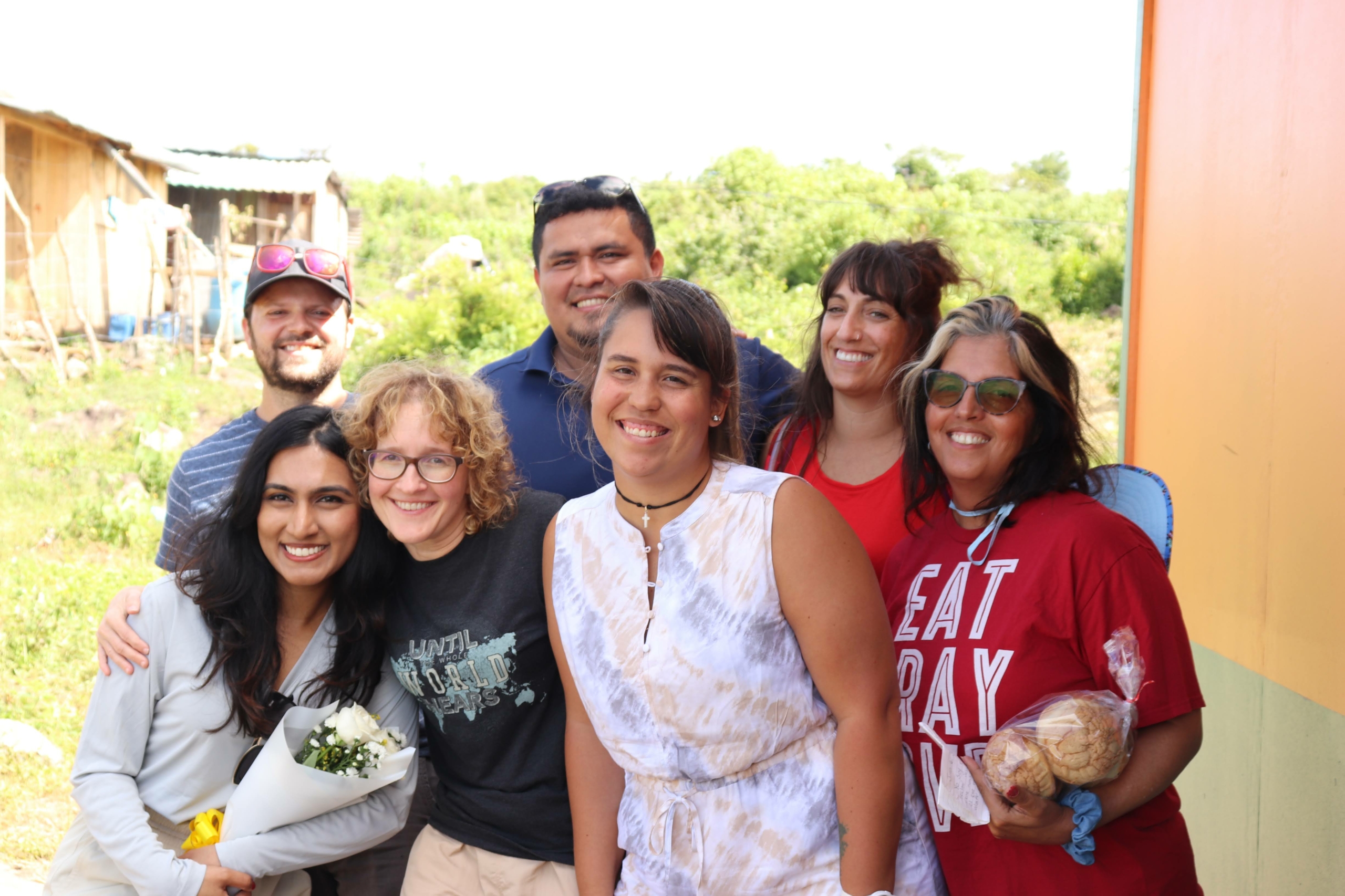
“At that time, I was spiritually thriving, constantly looking for ways to be obedient to God,” she said. Her attitude was one of ready obedience. No matter what God was going to ask of her, she already knew her answer would be “Yes.” She loved Him, and His church, and she felt spiritually alive. When she heard about the trip to Honduras, she decided to go. Not because she had a desire to travel internationally or even go on a mission trip at all, but because she wanted to be obedient to God. Brianna wondered, “How could I encourage my students or people in my small group to sign up for a mission trip if I had never been on one myself?” So, she signed up for the trip, wanting to be obedient and to completely embrace the mission of the church.
As the trip approached, her adult small group started to dissolve into chaos. Her group was full of messy, broken people trying to live in community with one another, bringing all their baggage with them. It was hard. And, as leading a small group tends to do, it shined a light on her own brokenness as well. Brianna leaned on her group guide, Rachel Fisher, as she navigated the uncharted waters of a difficult small group. Through this, Brianna started to feel a need in her life for more women who were slightly older and beyond her stage of life. She longed for mentors in the faith to walk with, share struggles with, and to challenge her to be more like Jesus. She wondered who God might bring into her life to fill that role.
The Trip
What happened on the trip was not totally unexpected—the team bonded quickly and intensely. Being on foreign soil with others in the name of Christ offered a beautiful experience. They felt a heightened sense of purpose for serving others and sharing the Gospel, knowing all the time, money, and effort it took for everyone to be there. It fused them together. Testimonies were shared; lives were impacted. The love of Christ united them all.
But according to Krissy, “I was skeptical that these new friendships would last after we got back home. The relationships that are formed on short term trips typically last no longer than the duration of the trip. Eventually, the norm goes back to being the norm.”
But something felt divinely different this time. “It took me by surprise when we came home, and the people from the trip kept calling. They kept texting, kept caring, and kept extending the open hands of friendship,” Krissy said. Some of the conversations that started in Honduras spilled over to the states. There were spiritual matters left unfinished, still things left to say, still decompressing and sharing about the impact of the trip. Soon, they were inviting each other to parties and other social events.
The shared time together continued growing deeper roots between Krissy, Brianna, and Maria. The storms of life inevitably hit, but their closely developing friendships helped them stand firm in Christ. Maria’s family struggles weren’t suddenly mended. In fact, when she returned, the storm continued to rage around her. The difference was, she wasn’t walking through it alone. Suddenly there were other women there, like a safety net ready to brace her fall.
“I see God’s hand in all of it,” Maria said, “the timing of the trip and when he brought Krissy and Brianna into my life. I had no idea how difficult my life would become, but God did. He was giving me the foundation of these friendships before life got really hard so that I would have them to cling to.”
Brianna’s small group didn’t magically pull themselves together while she was away. The struggles of leading messy people toward Jesus continued to be messy. But she gained two women to listen to her, to encourage her, and to challenge her.
Krissy’s temptation toward spiritual laziness and apathy didn’t immediately disappear either. But the ice around Krissy’s heart began to melt, and the counterfeit rest she was clinging to became less appealing. In the months following the mission trip, they counseled and uplifted one another. They grieved together and sorted through the confusion of life’s heartaches together. They found themselves scheduling intentional time to hang out and continue to do life together, even in the fast paced, isolating sort of busyness that is all too common.
“God called me to give my love away, to open my house, and open my heart to friendship again,” Krissy said. “I vowed that I would no longer serve the kingdom of self and comfort, letting those desires dictate my decisions. The joy of the Lord and His community is infinitely better.”
Today, Krissy, Maria, and Brianna are still deeply connected. The years since the trip have brought with them a torrent of unexpected challenges, including health scares, struggles with kids, and other spiritual attacks. Each one of them has endured pain, fear, joy, longing, and everything else that comes along with living. Maintaining healthy friendships with broken people is hard, even when the friendships are forged on a life-changing, gospel-centered trip. But despite busy schedules, personality differences, and different life stages, their deep, lasting love for each other remains. Although all three of them were drawn to the trip with different motivations, God, in his kindness, gave them what they all truly needed—gospel friendship.
“I thought that the trip itself might possibly get me out of my spiritual funk,” Krissy said, “but I did not realize it would be the people that did that.”
